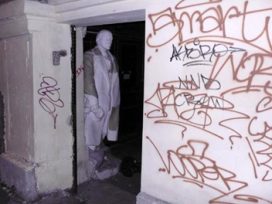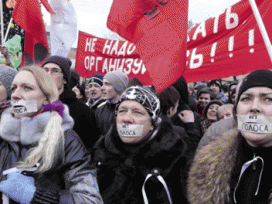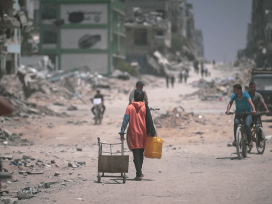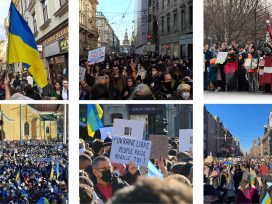After the fall of the Berlin Wall in 1989, Clifford Geertz predicted that the world would be characterized by ‘deep diversity’, ‘a sense of dispersion, of particularity, of complexity and of uncenteredness’ rather than unified world order, as stipulated by the then consensus.
In an age of identity politics and culture wars, Geertz’s insights sound even more powerful today than they did at the time. According to the American anthropologist, our task is ‘to penetrate the dazzle of the new heterogeneity’ and analyse the paradox that confronts us: the world is both more global and more divided than ever in human history. The sense that we find ourselves in ‘a scramble of differences in a field of connection’ is even more immediate, as is the realization that there is a multiplicity of alternative, sometimes conflicting and clashing, visions of the good.
This focal point, inspired by a lecture that Geertz delivered in 1995 at the Institute for Human Sciences in Vienna, summarized in the institute’s magazine, will engage with these issues. It follows the launch of a research programme of the same name at the institute in January 2023, coordinated by Clemena Antonova.
The collection of essays is an extension of earlier focal points ‘Eurasia in Global Dialogue’ (2018-2023, led by Clemena Antonova) and ‘Russia in Global Dialogue’ (2012-2018, led by Tatiana Zhurzhenko). Further texts have been contributed by journals in the Eurozine network.

In collaboration with
Marina Akhmedova spent four days in the company of drug users in Yekaterinburg, central Russia, and was met with a picture of desperation, punctured by love, humanity and misplaced hope. Shortly after it was published, this harrowing piece of reportage journalism was banned in Russia.

Can Russia be modernized?
Problems, causes, opportunities
Plans to modernize Russia’s economy are resisted by bureaucracies benefiting from the country’s status as natural resource appendage of the developed world. That dependency on energy exports hinders political and economic progress is certain: but is high-tech the solution?

Blatantly rigged elections are the easiest way for the Putin regime to mimic the authoritarian power it does not possess. December’s protests destroyed Putin’s reputation of being in control; even genuinely competitive elections would be unable to restore his legitimacy.
Russia’s democratic inertia results from the dominance of private over universal values, writes writes Samuel A. Greene. But what are the factors that could lead to change? While pressure from below is likely to provoke consolidation of the elites, long-term economic decline might encourage greater European integration and reform of the country’s institutions.
The politics of no alternatives or How power works in Russia
An interview with Gleb Pavlovsky
Gleb Pavlovsky, the Ukrainian-born former dissident turned “political technologist”, abruptly fell out with the Kremlin in April, reportedly over “indiscreet comments” made about the 2012 presidential elections. In interview with Transit a short while before, Pavlovsky gave a revealing inside view of the workings of political power in the former Soviet Union and in post-Soviet Russia.







